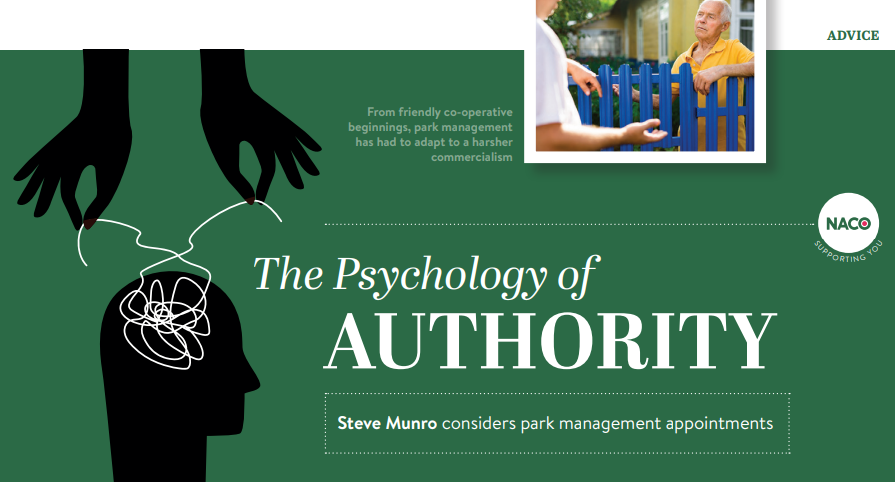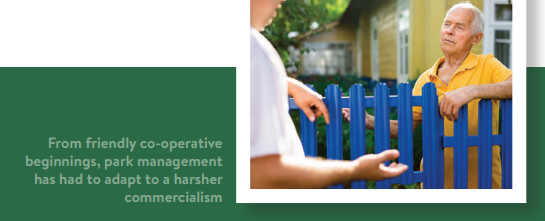
“THE WHAT OF WHAT??!” I hear you exclaim. Now, just give me a chance to run through a few points that may sound familiar.
You are a caravan owner on a park, operated by one of the national groups, with a history of moving its managers around the country. Suddenly your current manager is moved to another park. Unfortunately, there is no replacement available. The higher management has a look around the park and finds a suitable candidate in charge of the laundrette – a popular person with a smile for every customer. Ideal!
If you are familiar with this scenario, you are probably a few steps ahead of me here, but I’ll continue…
Made up to Park Manager, the employee in question undergoes a gradual, but noticeable change. Letters with reminders about rules start emanating from the office. Rules are introduced and the atmosphere at the park becomes a tad frosty. A complaint by a caravan owner results in the complainer being evicted and every now and then someone is banned from coming onto the park. What is going on?

Yes, what is going on? Well, without getting bogged down in highbrow research, I would like to make you aware, if you aren’t already, of an American experiment that was undertaken at Stanford University in 1971. It is known as the Stanford Prison Experiment and was begun by Professor Philip Zimbardo and his team of researchers to investigate ‘authority’ in society.
A number of apparently psychologically normal students from the university were divided into two groups and arbitrarily labelled ‘prisoners’ and ‘guards’. They were then taken to a mock-up prison and instructed to act out events that might occur there.
Initially calm, the situation deteriorated rapidly as the ‘guards’ became increasingly committed to their role. ‘Prisoners’ were mistreated and, without going into too much detail, the experiment was terminated by the researchers to bring an end to the suffering the ‘guards’ were inflicting on the ‘prisoners’.
It was concluded that once authority is conferred on people, there is a tendency for them to act in ways that – without the identifying badges – they would find bullying and abhorrent. When the ‘guards’ returned to their student status, they resumed their normal social interactions.

Where does that leave us in relation to caravan parks? Well, the person in my earlier example is probably pleasant and friendly in their off-duty guise, but when they wear the stripes of authority at the park, they behave in a way their friends wouldn’t recognise – arrogant, dictatorial, and definitely someone you don’t want to mess with.
On reflection, it seems amazing that someone with no proven track record of handling the demands they will be subjected to as a caravan park manager can occupy a position of such authority. From friendly co-operative beginnings, park management has had to adapt to a harsher commercialism and, in fairness, increased burdens of employment, health & safety and similar regulation.
Is there anything that can be done? Well, without ‘fit-and-proper person’ checking of park management personnel, the first line of defence for caravan owners is a robust, fair, contract that should give some recourse if the worst happens. And until the day when caravan owners can obtain some form of accreditation of the park operator when deciding on their park, the possibility will hang over them that its management may fall into the hands of the staff from the laundrette.

RELATED ARTICLES - advice and support caravan industry news products & reviews static caravan park review
Published on 01 September 2022 By Jenny Blumsom